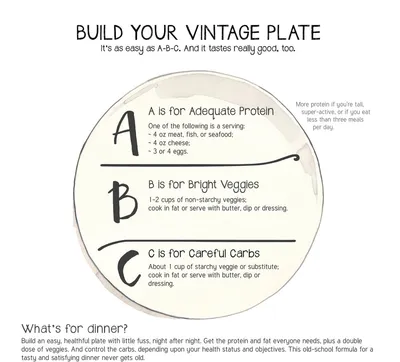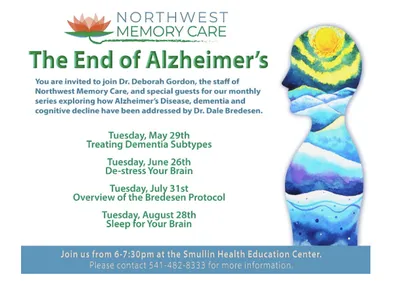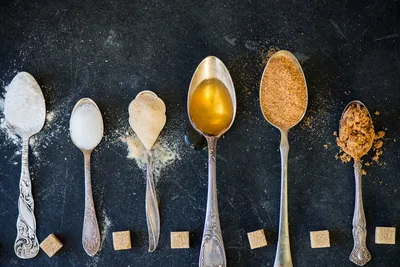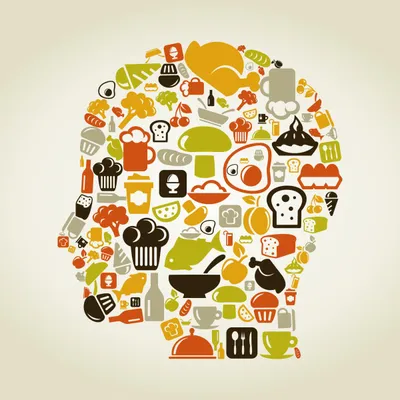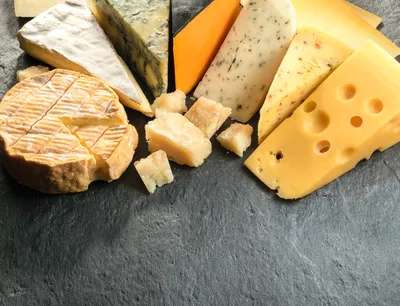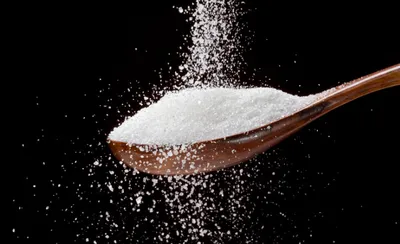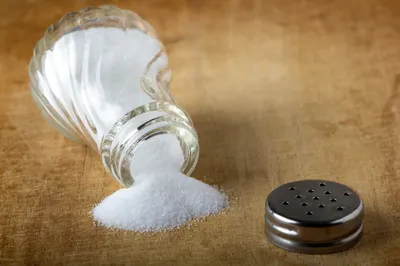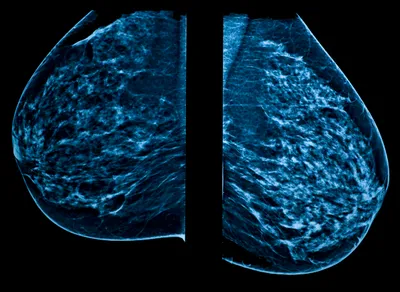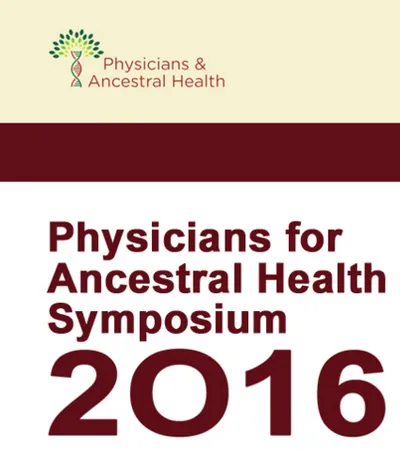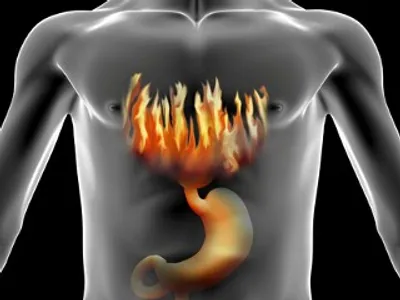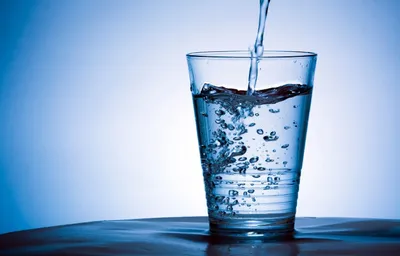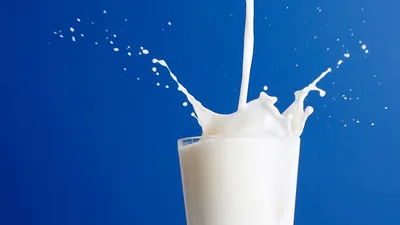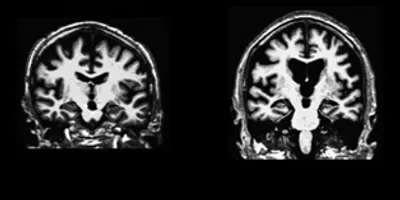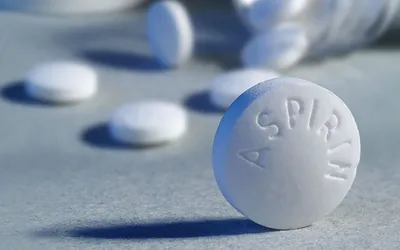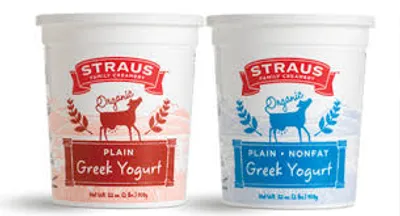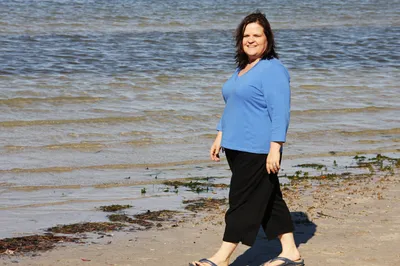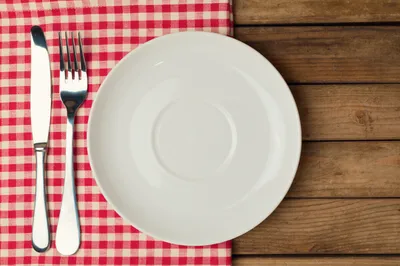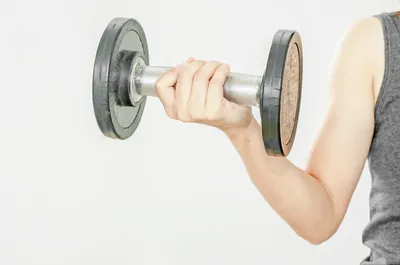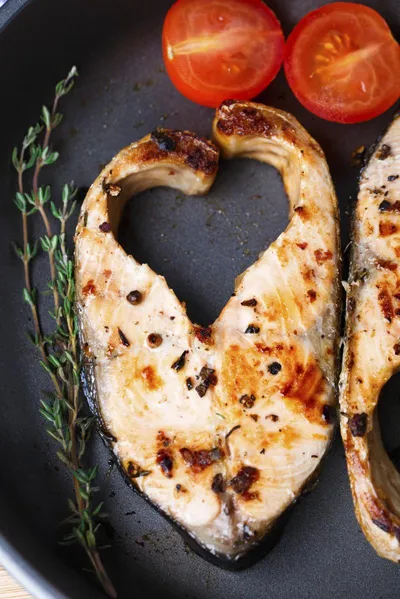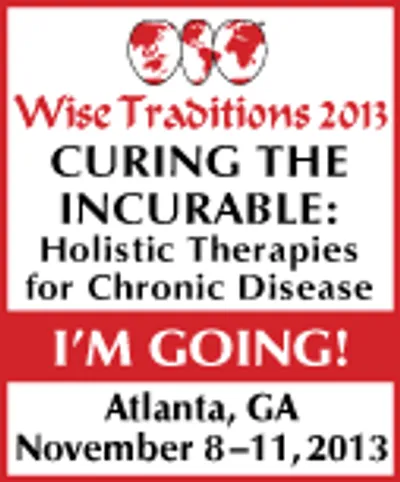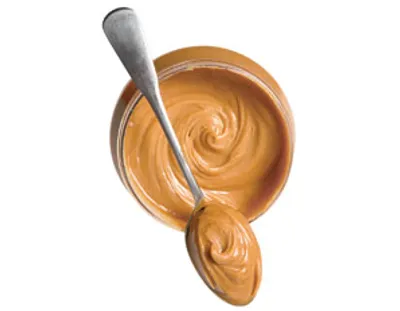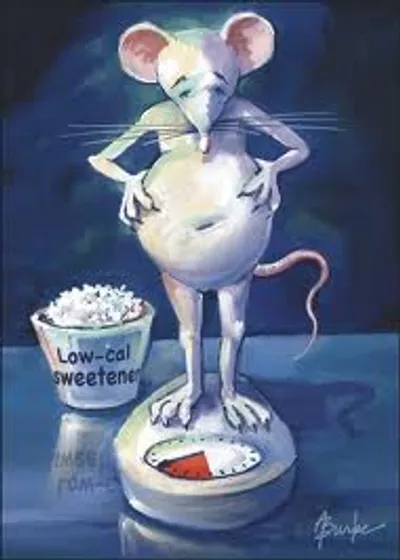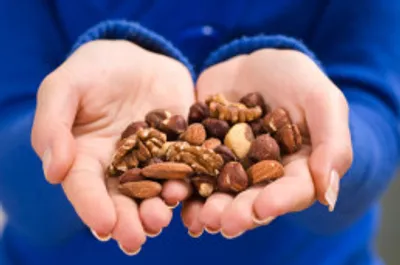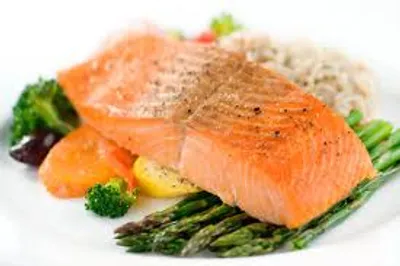You’ve probably heard alarm that our US life expectancy has gone down during the pandemic (and actually a bit before that as well), but I would suggest that one reason we were hit so hard by the pandemic is that we’ve paid little attention to our “health span”.
We have collectively shared one of the most shocking and surprising years any of us has ever lived through. The cute phrase for this on Twitter, should you visit there, is “I sure didn’t have THIS on my Bingo Card for 2020, did you?” After a certain point we have all developed a thicker skin for surprise, but I hope we have all kept a thin skin for awareness, caution and empathy.
Have you ever felt that your brain was foggy, just couldn’t do the work you wanted it to do? You think of intravenous caffeine? A “hungry” brain, lacking fuel is one of the key components of Alzheimer’s disease.
First, where have I been? Missing in action, and back for the new year with commitment to two? three? news items a month, just to keep things current.
Let’s start with one exciting piece of news: the ketogenic diet can help keep your arteries young!
A recent study showed that increased levels of a particular type of ketone actually helps keep blood vessels youthful, healing both the smooth muscle cells supporting the arteries and the lining (endothelial) cells exposed to our circulating blood.
At the risk of plagiarizing my good friend Dr. Georgia Ede, the only life-shortening aspect of Low Carb is reading drivel from the recently published Lancet study and slamming my head so hard with my hand that I sustain a concussion.
I know many of you have shared a history with me: quietly enjoying our butter even during the height of the margarine celebration in the saturated-fat-phobic 1990’s and early 2000’s. As is always the case, the paradigm began shifting from the outside. The Weston A. Price Foundation was founded in 1999 and embraced the principles of traditional eating, including many ways to savor butter and other saturated fat.
In fact, we’re actually getting fatter. A study recently published in JAMA reports that among young folks, obesity has climbed from under 17 to over 18%, and specifically and most alarming: looking just at 2-5 year olds, at first we thought things we’re getting better, but over the study period (2007 to 2015), obesity increased from 10% to almost 14%. Among toddlers!
Hope to see you at our series of public talks in Medford!
The presentation will always last about an hour, with plenty of time for questions.
General public welcome, no charge.!
The last Tuesday of each month
Smullin Center at Asante Rogue Regional
6:00 p.m. to 7:30 p.m.
See you there!
I’ve been slacking, so there’s a lot to catch up on, find a comfy seat and good lighting. Thanks to all the brilliant people I follow on Twitter (especially Benjamin Bikman, PhD ) for alerting me to some of these pearls! I hope you enjoy them.
The genius of Dr. Dale Bredesen’s approach to improving cognition is that he incorporated any and all interventions with any valid evidence that they might be helpful. In particular, he was open to the wisdom of Ayurvedic medicine, an ancient form of medicine from India in which the medications are herbal not pharmaceutical.
I hope this is actually not new news to you, but an article in this week’s The Atlantic lays out the utterly clear and repeatedly confirmed connection between eating too much sugar (it’s less than one might think!), keeping too much of it in our blood (happens naturally as we age), and then cluttering up our brain irreparably and developing Alzheimer’s.
The big news on the brain front is still The End of Alzheimer’s by Dr. Dale Bredesen: a multi-faceted, lifestyle approach that can effectively prevent and reverse Alzheimer’s and other causes of dementia.
I’m grateful to the many brilliant folks I am lucky to consider colleagues, and it is from these folks that I learn “old news” that I share with you as “new news” because it’s new to me. Or in this case, the science is new to me, the facts something I’ve “known” (could have been wrong, happened to be right: have to check these things out!) for a long time, but recently confirmed through research.
Thanks to Dr. Michael Ruscio for all his work on gut health and for recently highlighting a particular article on dietary strategies to control irritable bowel syndrome, also pertinent also to those with SIBO.
Long observed and recently studied, there is a clear link between excess body fat and certain cancers, well described in this LA Times article by Sam Apple.
Acetaminophen is not safe for pregnant women and in general not a great idea for any of us.
Last year a Spanish study of 2644 women and their new babies found an association between acetaminophen in pregnancy and increased rates of autism and attention deficit disorders in children of both genders, correlating with the frequency of exposure.
Scientific American called out statins in 2010 in an article titled, “It’s not Dementia, It’s Your Heart Medication. Valuable information, and I disagree with the title: it IS dementia and it may be your statins. The article opens with a 1999 anecdote of a 68-year old astronaut with a rather acute onset of dementia in a healthy man (an astronaut!) f
Although I’ve mentioned before that a ketogenic diet is likely to benefit many patients with Parkinson’s Disease, there is fresh news in the medical science world that confirms what many physicians and patients have confirmed among themselves.
It wasn’t even Throwback Thursday, but the American Heart Association (AHA) recently issued a new Presidential Advisory on saturated fats, assuring us all that they do indeed cause heart disease. Newspaper headlines ran with it, and all my patients asked me, “Have I truly been causing heart disease with my___________?” (In my house, that would be eggs, bacon, coconut oil, cheese, and cream. What about your house?)
Two risk factors for Alzheimer’s Disease have been in the news recently.
Here are my two main complaints against doctors promoting vegetarianism:
The uproar would of course be minimized if I asked “Who doesn’t like cheese?” I think for all ages and in its various forms, cheese is a big hit at both mealtime and snack time. The problem is, cheese has been demonized and blamed for weight gain and even more hazardous: for raising cholesterol levels.
In my practice, there are two sorts of mechanical problems that can wreak havoc on good health. Theoretically, we have mechanical solutions for both of these problems, but the statistics don’t lie and don’t vary from what I’ve seen. These are two problems that severely compromise the quality of health at any age, they are just more likely with advancing age.
Meat fared well in several venues recently.
Everywhere in the medical world, we learn that advancing age is a major risk factor for any chronic disease, so I was delighted to read this fairly new article that takes that idea and runs somewhere helpful with it. I concede that there is no avoiding everything, but there is much we can regulate by our life choices.
Maybe you’d better sit down before I tell you this shocking news: our fear of dietary fat was partially fueled by sugar industry investment in favorable sugar research. Hard to believe, isn’t it? What, you’re not shocked?
A recently published study opens up an area I hadn’t considered before: the long term risks of cardiovascular disease in pregnancy.
There has been a fair amount of discussion recently about articles such as this one that urge doctors to consider ruling out insulin resistance far more often than they usually do. Many docs have the habit of checking a few simple blood sugar measurements (maybe JUST fasting blood sugar) and waiting until it’s significantly abnormal before they really test for insulin resistance.
Public health messages have a bit of a repetitious quality, even when there is abundant evidence that they stand on shaky ground. For instance, if you peruse WebMD, or any conventional health-related sites, I imagine you’re wondering if you should cut down on your salt intake. Probably not, let’s see why…
Why haven’t I seen this information before now!? It doesn’t change my mind, but if you are still getting routine mammograms, it might change yours. I saw this article first in Consumer Reports.
It’s the sugar.
I predict that within 5 years, doctors will not be relying on routine lipid panels to assess risk of cardiovascular disease. My prediction reveals my inherent nature as an optimist!
Calcium’s role in the body is vast: not only is it the main component of healthy bones, but in all its other locations it participates in the proper balance of electrolytes that facilitate communication between cells as well as the production of enzymes, neurotransmitters, and our immune response. But, here’s the thing: there are many places you only want calcium as a communicator (living in the body’s fluids) and not as the kind of rigid deposit it forms in our bones.
We had a great winter retreat in Arizona this winter, and enjoyed a wide variety of talks. All of which directed themselves one way or another toward a health, ancestral-based, lifestyle.
We don’t need to read any statistics, we all know that there are way too many disabled veterans in this country, and that they don’t seem to be getting any effective help.
**Wrapping up the holidays, I have extended my discount code to you. All prices in my online store are 10% discounted with the coupon HCPC416HOLIDAY. Follow through with that New Year’s intention to take good care of yourself!!***
Low carb ketosis for athletes? The long-awaited study by Dr. Jeff Volek and team has been released.
How’s your memory? Although most of us can accept a few glitches in memory as we get older, the thought of losing significant cognitive ability is terrifying. How can we enjoy the wisdom of age if we can’t remember it?
I definitely have a bad eating habit, and it’s not fast food, it’s eating food too fast. I can’t blame it on my medical training, it’s always been true. I can blame it on being in a hurry about many things: I also talk too fast. But I have a new plan to eat more slowly. Here’s why.
A panel of experts vested by the World Health Organization to evaluate the effects of eating meat reported on Monday (October 25, 2015) that eating processed meat (hot dogs, ham, bacon, etc.) raises the risk of colon cancer and that consuming other red meat “probably” raises the risk. As you can imagine, the report has attracted a lot of attention, and deserves to be put in perspective.
It happens to me most often when I’m responding to an after hours call from a patient, or during a scheduled phone appointment during a workday.
I hear background noise and ask if the person with whom I’m speaking is actually, at that moment, driving. If they’re the passenger in a car, fine, I’ll go ahead and speak with them. If they’re driving, I ask them to pull over.
Perhaps you heard about the recent study on the amount of sleep enjoyed by modern hunter-gatherer societies, the full text actually available here as a nice nod to public interest and intelligence.
Researcher Kevin Hall at the National Institutes of Diabetes and Digestive and Kidney Disease Laboratory published a study in a recent issue of Cell Metabolism that set alive the world of metabolic researchers and physicians.
Most of us past the age of 50 notice that we are forgetting things from time to time, sometimes quite alarmingly. Out walking with a good friend, we encounter another and start to introduce our friends to each other… and we forget our close friend’s name! It comes right back in a flash, but we start to worry. Then we’re describing a recent problem with our car engine and forget the name of the part we had to replace.
My jaw dropped as I queried, “What did your doctor say?” One of our most beloved local gastroenterologists actually said to more than one of my patients something along the lines of “You can stay on these proton pump inhibitors for the rest of your life if need be.
That apology is what should be coming out of the US Department of Agriculture in concert with the US Department of Health and Human Services. Turns out 40 years of telling people to restrict dietary fat and put a strict limit on dietary cholesterol were ill-founded and resulted in more, not less, cardiovascular disease.
I should always clarify what KIND of news I’m including in this space. There is actual news: a new study, or a new observation, something that adds to the general body of information on which we all rely to keep fine-tuning our health to the best of our abilities. The second kind of “news” is when I write that the media version of some health-related news needs some serious taking apart.
If you’re over 50, you certainly have had the experience of looking in the mirror and being shocked: wait, I thought I still looked the same as when I was younger… I still FEEL the same person inside! The mirror tells us otherwise: we develop facial wrinkles, brown spots from the sun, and thinning, gray hair. I’m not ready to look like my grandmother… yet.
Do any stores near you carry the magazine Spirituality & Health? If so, swing by and pick up a copy of the May/June issue and check out my article, “Why go Paleo?” with some really great photography taken by the son of a friend of mine. No such local store?
The synthesis of thyroid hormone, and its regulation, are complicated! If you’ve followed my Thyroid Thicket series, you have an overview of approaching someone who might be considered to have thyroid hormones.
One of the details mentioned early in Part Three is that if you have low iodine, you might normalize thyroid levels by simply replacing iodine (or zinc, or magnesium).
OK, I have no idea whether statin drugs look anything like the pills in the picture, but what is a greater mystery to me: why isn’t the world jumping up and down about the article published last month suggesting unexpected adverse effects from statins, exactly in the areas where it was hoped they were the greatest benefit?
Does milk build strong bodies or is that just an advertisement?
We all know baby mammals drink milk and grow well with an exclusive dairy diet at the beginning of their lives, but what about those of us at the other end of our lives? Should we still be enjoying milk and imagining that it does us any good?
“Oh, don’t worry,” the doctor said in a kindly voice, “these little hot flashes will disappear on their own.”
Admittedly this sounds like a cheesy sci-fi term, but it’s your inflammasome that you can alter with diet or exercise, and thereby reduce inflammation in your body overall. Since inflammation is associated or known to be causal with almost any chronic illness, reducing inflammation is a great thing.
Trouble sleeping? Overactive bladder? Someone recommended a low-dose anti-depressant for chronic pain? These are three common scenarios in which people take one of the drugs classed as anti-cholinergics, a category of that acts directly on the “cholinergic” receptors in our body, occuring in different places, including our central nervous system. Eggs are a “brain food” because they are rich in choline, used to make a neurotransitter called acetyl choline.
The current flu season has reached epidemic proportions in the United States and is showing signs of the severity expected when the current flu strain was identified. Unfortunately for those who received the flu vaccine, the current flu’s variety of H3N2 virus is not well matched to the annual flu vaccine.
“Say, I’m a little sleepy – this rough, small, cold, concrete bed looks good, I think I’ll just…zzzzz…”
When was the last time you fell asleep that easily? It’s one of life’s great pleasures, isn’t it?, to feel the pull of sleep and to allow yourself to succumb fully to the bliss of easy sleep.
Customary is NOT the same optimal when it comes to sleep. Specifically, let’s talk about a commonly repeated disclaimer, “No, I don’t sleep so well, but, hey, people always sleep less as they get older.” The defense is repeated for good reason as it does seem to be true – the quality and duration of sleep both decline in many if not most people with aging, starting even in your 40’s, which to me sounds still very young!
Confirming other similar results, a study released today reports on the latest efforts to investigate the usefulness of daily aspirin.
A recent study published in the British Medical Journal found that high levels of milk drinking did not confer the benefits milk producers promote.
For decades, one possibility of treating seizures in children has been the ketogenic diet. Once the mainstay of epilepsy treatment, the troublesome ketogenic diet faded to a lesser position with the advent of pharmaceutical drugs capable of controlling seizures with only minimal or moderate side effects.
How many hours of sleep are best for you every night? Do you sleep the same amount every night?
On average, Americans sleep less during the week, 6-plus hours, and creep up above 7 hours on the weekend. In a recent study discussed in the Wall Street Journal here, some findings are familiar: skimping on sleep by as little as 20 minutes has cognitive effects.
I just made an appointment with a Physical Therapist specializing in athletes with knee problems: I loved giving my Medicare information and saying also that I am an athlete! Okay, I have to say I’m a side-lined athlete until the PT can perform some magic on my chronic tendon and bursa issues around my knees, but I am determined to race again (rowing) and ride again (bicycling), so he’d better be good.
Two very important life-style choices might be of significant benefit if you want to prevent a recurrence of colon cancer.
A recently released study identified both regular exercise (60 minutes weekly) and twice weekly fish meals as factors associated with a reduced risk of cancer recurrence.
One of the recent newsletters from a popular health and fitness doctor suggested that we only need exercise a bit more to keep from gaining weight. Evidently all the different health authorities have calculated the amount of exercise needed. The recommended guidelines would have a middle aged woman exercising at least 20 minutes vigorously 3 X a week, or moderately at least 150 minutes a week.
I was recently on a “Preventing Diabetes and Obesity” panel with a local cardiologist. I asked him what he thought about all the recent review studies clearing saturated fat of any association with heart disease. His response was, “Well, a little bit might be okay, but not much.” I should have carried this study with me!
Someone at the FDA must subscribe to the DrDeborahMD newsletter? You might remember some time ago that I suggested the conventional wisdom might be erroneous: the risk of daily aspirin is real, and people without known heart disease have no real benefit and only harm to be expected from taking a daily aspirin. I recommended against it here.
A recent study adds to the growing body of research evaluating low carbohydrate and very low carbohydrate diets. Working with a group of overweight and obese adults, all of whom qualified as either pre-diabetic or type 2 diabetics, researchers employed two different dietary strategies.
So far the research has just been done in mice, but it’s a provocative study, given that we’re learning more every day about the critical role played by the nature of the friendly bacteria living in our intestines. Well, friendly or not so friendly.
Although some dermatologists would insist that sensible and sun do not belong in the same sentence, scientists have begun to ferret out the explanation for what many people – including myself! – have come to believe: a certain amount of sensible (non-burning) sun exposure is not only safe but crucial to health. Crucial to overall health, and skin health.
Researchers in Japan interviewed seniors (hovering around 67 years of age) regarding their protein intake, either animal or plant, and evaluated their functional abilities measured in social, intellectual, and physical activity spheres. You can read a summary of their findings here.
The big news this week? A major journal published a study despite clear conflict of interest between the lead author and his cherished headline!
My office practice is old-fashioned, no nurse helping me, so I personally handle any measurements that need to be made. Rather than weigh people, I measure their waist and compare it to their height. If your waist is at or under half your height, you are at a healthy place. (Two measurements I find useLESS include BMI – which penalizes you just as much for muscle as it does for fat – and the oft-stated goal of less than 35” for a woman’s waist. Really? Regardless of height?!)
“Amber waves of grain” we sing, believing that wheat has been and perhaps should be a part of American identity. William Davis, in his New York Times bestselling book, Wheat Belly, tells us that wheat has changed and, in his opinion, is no longer worthy of “staff of life” designation, in fact it would better be called “stuff of lies,” offering more physiological harm than benefit.
The latest news on mammography has a long history worth summarizing.
I came across a remarkable paper today, published in the American Journal of Medicine, and remarkably (!) fully available online.
Two MD authors, James E. Dalen, MPH and Stephen Devries, FACC, summarize carefully and clearly 56 years of nutrition studies investigating the diet heart hypothesis.
It has been noted previously that diabetes, even mild elevation of blood sugar, increases the risk of developing dementia with advancing age. Because many diabetics also develop cardiovascular disease, it has been difficult to say whether the elevated blood sugar wreaks its own havoc in our brains, or merely advances hypertension which causes cognitive loss.
Can we please write “Defense of Sugar” underneath the R.I.P. on the grim photo above?
Did you know you can develop incredible tolerance to exercising in the cold, and it might be a good idea?
Intermittent fasting (IF) is a bit of a buzz word among those interested in the wisest way to eat to optimize health and performance. IF seems to allow gentle calorie restriction without its usual problems of metabolic downregulation and hormone imbalance. A bit of calorie restriction without those problems can help with weight normalizing and might contribute to increased performance and longevity.
When exercise recommendations are given for health improvement, particularly for diabetes prevention, it is usually suggested that you get a good half hour of aerobic exercise daily. It has been previously found that men can achieve a similar if not greater benefit through weight training, and now that study has been done for women as well.
It’s not enough to say “Eat fish”. Based on yet one more study, I would advise you to eat fish TWICE a week.
You can do it almost anywhere, any time, and it might help. I’ve mentioned meditation several places and recommend it as a method to soothe jangled nerves, ease sleep problems and help focus your mind.
I have talked about the overwhelming number of bacteria housed in a healthy digestive system, 100 trillion little critters compared to a measly 10 trillion cells in the body those critters inhabit. One very smart health blogger, Chris Kresser, has suggested that if the twentieth century was the era of anti-biotics, the twenty-first will be the era of pro-biotics, and I hope he’s right.
The simplest and safest way to be healthy might just be going for a walk! A recent study published in the British Medical Journal stepped back and took a broad view of possible medical interventions for serious health conditions. Their findings were reassuring to me, and hopefully inspiration for all physicians. Simply put: exercise works, and it works overtime and safely.
I just read a very nice article on organic vs conventional milk reporting on a recent rather large study.
Although vitamin D normalization has been credited with many health benefits, there has not yet been a clinical trial looking at the effect of vitamin D supplementation on isolated systolic hypertension. Just such a study was reported recently.
How do you respond to loud noises? Many people know that chronic exposure to loud noise can lead to hearing loss, but it turns out there are other health effects as well.
Ah, yes, full fat dairy prevails! It’s hard to identify the origins of the consistent health recommendation to select low-fat over full-fat dairy. Despite recent findings that children are healthier on full-fat dairy (they are more likely to have metabolic disurbance on low-fat), schools are still encouraged to select low fat.
Has depression ever interrupted your sleep? Recent research suggests that it also works the other way around, that sleep problems can aggravate depression and sweeter sleep makes it easier for you to bounce back from your depression.
Recent surveys of fish oil capsules performed by independent laboratories have revealed a fairly significant proportion of rancidity in the products sampled. Researchers from Spain recently investigated just what would be the effect of consuming those oxidized fish oil capsules, and the results are not surprising.
Perhaps it’s not so newsworthy each time a practicing physician sees the light about saturated fat. It’s happened to many physicians, even cardiologists. But it becomes news when a leading medical journal highlights an article exonerating saturated fat as a cause of heart disease.
The annual Wise Traditions Conference is less than a month away, and I just learned that they still have openings for you if you are thinking of going!
In a study focusing on health professionals, attention focused on the association between fruit consumption and risk of developing type 2 diabetes. What they found was that simply eating three servings a week of fruit didn’t seem to affect whether or not the fruit-eater subsequently developed diabetes. Reasonable as that seems, one might find it surprising to learn that the actual numbers associated with specific fruits varied widely.
Researchers in Scotland report that when after reviewing the health records of over 37,000 people born since 1950, they found that those people whose mothers had been obese at their first prenatal checkup tended to die prematurely from various causes, compared to the children born to normal weight mothers.
It has been previously noted that diabetes raises the risk for osteopenia and osteoporosis, although the mechanism has not been well understood. Rather than focusing on blood sugar levels, the researchers in a newly published study compared bone density readings to fasting blood tests that looked at both blood sugar and insulin levels.
So far just one small pilot study, but what an amazing finding! Jennifer Stamps and colleagues working with patients at the University of Florida’s Brain Institute have noted in Alzheimer’s patients a consistent defect in the sense of smell and describe an easy way to test for it.
I guess we aren’t: despite concerted effort on the part of the CDC, state and professional educators, it seems that physicians are still over-prescribing antibiotics, and probably that many people are over-consuming them.
A fascinating study was released this summer that addressed the worrisome problem of sacropenia, discussed previously on this site. In general the risk of sarcopenia (muscle wasting or muscle loss) has been feared to be inevitably increased during periods of weight loss, assuming that the body would always burn both fat and muscle for fuel in the process of losing excess body weight.
One of the variables hardest to study in a diet is sustainability: many different eating plans result in short-term weight loss, but which can keep you satisfied for the long haul? Recent studies, including this one, have found a Paleo Diet superior to other options in the treatment of type 2 diabetics. On the Paleo Diet, diabetics lose more weight and improve their laboratory tests as well.
Great news! First of all, quoting from the articleat Huffington Post, “while the demand for sustainable meat is booming, the industry is having difficulty keeping up.” What a wonderful difficulty to have.
Researcher Susan E. Swithers has written in the journal Trends in Endocrinology and Metabolism an attention-getting editorial reviewing the mounting evidence that frequent diet-sugar consumers may also be at risk for all the hazards of excess sugar consumption: weight gain, metabolic syndrome, type 2 diabetes, and cardiovascular diseases.
When a serious group of researchers performs a meta-analysis of many already existing studies, screening them for quality and assessing the strength of their collective findings, I am always eager to see their findings.
A wonderful study by Guasch-Ferre and colleagues in Spain has evaluated the effect of nut consumption on mortality, including deaths from cardiovascular disease, cancer, and all-cause mortality.
An international collaboration of researchers has specifically identified what we have all suspected, namely that the
It has long been known that statin use can cause musculoskeletal pain, particularly in users who do not supplement with CoQ10, a suggestion that should come from any physician or pharmacist who is still involved in urging people to take these mostly ill-advised drugs.
News story in the headlines this week: concurrent with our ever increasing national waistline, we are indeed following the conventional medical advice.
When public health officials suggest actions we can take to improve our own health and the health of their community, it is time that they start advocating for the purchase and consumption of meat that has not been treated with antibiotics. Cows raised naturally on pasture seem to have very health immune systems.
An article posted online at BMJ (British Medical Journal) today reported the results of a meta-analysis involving over 800,000 participants and 20,000 breast cancer cases.
Are you a milk drinker? I encourage my patients who enjoy milk to seek a source for reliable raw milk, despite the alarming reputation of the associated hazards. Raw milk is easier to digest, metabolically safer, and provides a legitimate boost to the immune system. Pasteurization was developed at a time when milk handling was not just questionable but highly dangerous, spreading disease that was little understood at the time.
A study recently published in the British Journal of Nutrition and described here is the first meta-analysis to compare the two most popular weight loss strategies. A meta-analysis evaluates and combines individual published research findings that look at the same question.
Great news for tea drinkers in a recent study published in the American Journal of Epidemiology. Pursuing evidence that flavonoids – abundant in black tea – could prevent prostate cancer, researchers interviewed almost 60,000 men and compared answers to 20 years of medical records.
A noteworthy study was reported in a NYTimes article describing the impact of weight loss in a group of obese patients with psoriasis.
Glen Lawrence, of the Department of Chemistry and Biochemistry at Long Island University, has written a categorical review of the existing research on dietary fats and their impact on health markers and health itself. Published in Advances in Nutrition, Lawrence wonders in print just how saturated fats attracted such bad press.
A frequent reader of this site will know that I am no fan of the drugs known as “statins” as a routine prescription. I have no argument with the clear indication of benefit when statins are used in men with known heart disease, following an actual heart attack, stent placement, or diagnosed myocardial ischemia. In those cases, the research indicates that statins save lives.
Among the most devastating of food-borne illnesses are the E. Coli infections contracted through eating contaminated meat. A recent
Glen Lawrence, from the Department of Chemistry and Biochemistry at Long Island University, has published a comprehensive review of the relationship between dietary fats and health in the May Advances in Nutrition in which he summarizes the well-researched observation that our decades long fear of saturated fat is ill-founded and has been hazardous to our health.
One of the perplexing issues surrounding the prevention and treatment of osteoporosis has been all the hazards (increased ortality, increased cardiovascular disease) associated with the conventional medical recommendation to increase calcium intake. It turns out that calcium supplementation is not only unnecessary with a normal vitamin D level, it can be hazardous – as I’ve long said – in the absence of adequate vitamin K2.
If you have followed recent statistics on childhood health, you know that children are showing an alarming increase in allergies and eczema. The allergies range from life-threatening food allergies to simple respiratory allergies, sometimes associated with asthma and eczema. Little consensus exists on the cause for the increase, though reports have suggested that less fastidious lifestyles are somewhat protective.
I have asked before on this site, “How did you sleep?”, because I may be even more convinced than you are on the benefits of sleeping well. In fact, sleep problems are among the most commonly cited reasons for seeking medical attention. We all know that we feel better when we get a good night of z’s, and medical researchers know there is more benefit than that.
Following closely on the heels of a media fest over a study positing a causative role for red meat in the development of heart disease, a seemingly diametrically opposite result has come of a different study, th
In recent news from the Department of Health and Human Services, we learn that the National Vaccine Injury Compensation Program has awarded almost $6 million to 49 victims in claims made for injuries received after vaccination with the controversial HPV (human papillomavirus) vaccine.
A recent study published in the journal Nature compared the effect of eating sirloin on measured blood levels of TMAO (Trimethylamine N-oxide if you’re curious), a compound produced by gut bacteria presumably in response to carnitine in the meat, and previously associated with an increased risk of heart disease.
Two new statistics, updating the incidence of autism to 1 in 50 in the US currently and that of attention deficit hyperactivity disorder (ADHD) to 1 in .
Recently reported in the American Journal of Public Health and widely covered in the general press, is the analysis of mortality data from the US, collected in 2009 compared with records of alcohol consumption. The investigators found an association – this was not a study that tested the effect of alcohol, but only one that observed patterns – that suggested 3.5% of US cancer deaths in 2009 might be attributed to alcohol use.
The New York Times reported on a very interesting study on happiness and wakefulness, of particular appeal to anyone with a homeopathic frame of mind.
In an interesting little study looking closely at inflammatory bowel disease mechanisms, mice were stressed and observed for their levels of stress related hormones. The hormones elevated during stress appeared to reduce the healthy gut flora and provoke inflammation of the gut lining, akin to inflammatory bowel disease.
The New York Times reported on a research article recently published and summarized as follows “In the first randomized trial to address whether people with diabetes benefit from restricting fruit, researchers found that avoiding fruit may not have benefits for those with Type 2 diabetes.”
If you are someone who plans your life months in advance, you might want to look at the updated list of speakers scheduled to present at the National Weston Price Conference this fall in Atlanta, Georgia. There are lots of folks I look forward to hearing.
I didn’t sleep a wink last night after reading the latest study linking insomnia to yet another health problem, this time heart failure. If you’re ready to take on the information you can read the study here.
Another health problem is linked to the accumulation of fat around the middle: colon cancer.
Although researchers publishing online in the Journal of Cancer Research admit that “only” half of the cancers are affected by lifestyle conditions of inactivity and obesity, I’d say that is a huge “half”, at 54%.
A newly releasted report on the incidence of breast cancer appeared in JAMA today indicating that the incidence of metastatic breast cancer in women 25- to 39-years of age has almost doubled from 1976 to 2009, from 1.53 to 2.90 per 100,000 women, or a growth rate of over 2% per year.
A recent study done on mice will hopefully show relevance in human experience, if we can get the data. Mice with high risk of breast cancer development were protected with high levels of omega 3 fatty acids.
Once the realm of “kooks”, the criticisms of fluoride as a drug additive to public drinking water have gained respectability. As described by Dr. Mercola in The Huffington Post, a recent study performed at Harvard University, funded by the National Institutes of Health, compares evidence available from 27 previously published studies. Twenty-seven!
An international study of hundreds of thousands of children and teens found a strong correlation between consumption of fast food and synptoms of asthma, eczema, and rhinitis. Eating fast food meals at least three times weekly was associated with a 39% increased risk of severe asthma in teenagers.
“I can’t remember when I last had a good night’s sleep.” Turns out those two problems are related: older folks (or anyone) whose sleep lacks high quality deep ‘slow wave’ sleep actually have impaired memory function because of their poor sleep quality.
Working on the content for the third class of Live, Lose, and Learn (Lose Fat, Inches or Inflammation – 6 weeks to learn a new way of eating), I was reviewing the ways in which vegetable oils contribute to the obesity epidemic. Chief among those reasons has always been, in my mind, the instability of the polyunsaturated fatty acids, their omega 6 fatty acid content, and the likelihood that they are genetically modified.
Women, particularly, might particularly benefit from a generous intake of blueberries and strawberries, according to a study reported in the NY Times today. As a correlation, not an intentional study with an intervention, the science is not a perfect confirmation, but rather a suggestion. What I do with such a suggestion is wonder what else I know about berries?
Although it was not long ago that we looked at a comprehensive list of toxins in the environment that can make you sick, check the list out here, I just had to admit that a picture can be worth a thousand words, as in
A new word to me this year: obesogen, meaning environmental factors that act as endocrine disruptors in the realm of obesity. Previously identified hormone disruptors have mainly been estrogen analogues, turning male frogs into hermaphrodites, or feminization in other forms. We know now that adipose tissue – rather than just being a fat storage unit – produces its own hormones, and some of those contribute to the maintenance or expansion of existing adipose tissue.
Did you know that more than 200,000 women in the US are newly diagnosed with breast cancer each year? We have long known that physical activity decreases breast cancer risk and that excess weight increases the risk, but recent research has clarified those points with a few more specific details.
The debate over municipal water fluoridation will enjoy its next major public appearance in the city of Portland, Oregon, where last fall the City Council approved a plan to fluoridate the city’s water by 2014, and not long thereafter, Clean Water Portland accumulated enough signatures to place the issue on the public ballot in May of 2014.
No, telomeres are not a new exotic vegetable to seek out at the market, but rather the little caps on the end of your own DNA, that protects the DNA from breaking into fragments or inadvertently connecting with another strand.
Scientists from my alma mater, University of California at San Francisco, have found and published the physical evidence of aging that correlates with what I hear from my patients.
Scientific studies have identified various ways in which cruciferous vegetables reduce the risk of breast cancer. Polish women who continue to eat cabbage more than three times a week after moving to the US, for instance, maintain a low risk profile similar to women remaining in Poland. Give up cabbage, it’s at your own peril: risk rises to equal that of their US born neighbors.
A study in the journal of Nutrition compared metabolic marker changes in two groups of obese diabetic subjects. One group followed a low-calorie diet and the other group was on a low-carbohydrate, ketogenic diet (LCKD). Both groups had favorable changes but they were more marked – i.e., greater improvement – in the LCKD group.
A study in the journal Menopause, as reported in the New York Times, concludes that in an ethnically diverse population, women with an early (under the age of 46) menopause, had about double the incidence of heart disease and stroke as those women with a later menopause.
The big news of the week is the concession in Dean Ornish’s plea for healthy eating in this weekend’s New York Times.
Conventional media has picked up a sliver of the Paleo, Low-Carb eating craze by interviewing, albeit briefly, Dr. William Davis on CBS This Morning, September 3, 2012. Congrats to them for addressing a small part of several controversies: the wheat industry and the obesity problem.
If you are troubled by sinus congestion and have read the Healthy Steps for sinus health, you already know what hit the New York Times this week, a reminder about using only distilled or carefully filtered water for sinus irrigation
First the background, then the news. When I first heard about fluoridation of drinking water, probably as a teenager in the 1960’s, the only opponents were the John Birch Society members who saw fluoride as a government plot, and I assumed fluoride was safe because doctors and dentists recommended it. I know now, after my own investigation, that it’s a potentially toxic substance and only one of many methods to strengthen tooth enamel.
The Economist is not a usual source of health information, but a recent article offers a substantial and valuable insight into our well-being. The article describes the various functions of the microbes – bacteria and other microbes living harmoniously within a healthy body – we refer to as “probiotics”.
A mapping organization had a clever idea, and they mapped the location of Farmers’ Markets all across the United States as well as the obesity rates.
Chocolate intake has been studied for various health effects and has already been associated with lower blood pressure, lower LDL cholesterol, and increased endorphin production. That on top of its taste (OK, that’s a personal decision, I know) is enough, but wait there is more – hot off the press, is a new association.
And the news isn’t pretty. Even the healthiest states, the palest on the CDC map, have nothing to brag about. At a 20-25% obesity rate, any state should still be mortified and, more importantly, motivated. The CDC is the arm of the federal government usually devoted to infectious disease, as the Center for Disease Control.
Two sobering stories released about adolescents and cardiovascular risk. The first catalogues the distressing degree of cardiovascular disease present in today’s teens, with 2-3 or more cardiovascular risk factors present in the overweight and obese teens.
Alzheimer’s disease developed more frequently in French women – aged 76 to 84 – who were consuming less vitamin D in their diet, according to a study to be published soon from the Angers University Hospital Group. The association between vitamin D levels and preserved cognition has been noted before, but this is the first study to follow people prospectively and to assess their dietary vitamin D intake, aside from sun exposure.
The Institute of Medicine (IOM) is still wrong. Reflecting on the obesity epidemic, an IOM spokesperson laments that “People have heard the advice to eat less and move more for years, and during that time a large number of Americans have become obese.
Just because you can, it doesn’t mean you should look for evidence of a possible cancer. The debate over cancer screening has flared over recommendations for mammography as well as those for prostate specific antigen (PSA) blood levels. In both cases, the test is relatively easy, inexpensive, and now largely covered by insurance.
Evidence accumulates from various sources about the different hazards of our unnaturally scrubbed clean and urban environments.
I am amazed that most of the comments and the implications of Mr. Hoffman’s writing is that fat people are gluttonous and slothful, somehow deficient as human beings, and that is why they are fat.
Sleep deprivation is associated with an increased risk of obesity, presumably by altering the hormones our body produces and releases during sleep hours. Some interesting findings in the study, such as an increased progression from pre- to full diabetes in people shifted to an alternate sleep schedule.
Nutritional studies are notoriously difficult to perform with certainty. Nevertheless, each new study result can be compared to what we already know to gauge its worthiness. In this study, known dietary habits were sifted against tested cognitive ability.
One of my goals is to help you sift through the often conflicting information you might read from different “healthy news” sources. Dr. Weil recently picked up a story from the news and suggested, just like the research rats, you trade one poison for another.
Have you ever been challenged to remember what you were just doing, or a name you just learned? As we age, we all suffer some degree of short-term memory loss. Severe memory loss adds untold stress and heartbreak to those impaired as well as their family members.
Meditation classes are thriving, even usurping time from once athletic yoga classes. Meditation is widely acknowledged as a stress reduction technique, and has also been associated with reduced blood pressure and improvements in other physical measures of illness.
Are you shocked to learn that people are taking drastic measures to lose weight? A recent story in the Huffington Post reported that eager dieters, particularly glowing brides-to-be, are putting tubes down their noses to bypass eating as a means to lose weight. Are they are making a rational response to the illogic of most dietary advice?
Optimism appears to reduce the risk of heart disease, an association that persists after all other confounding factors have been eliminated.
Sugar-sweetened sodas contribute to weight gain, diabetes, hypertension, high cholesterol, gout, coronary artery disease, and strokes as well, in amounts as low as one soda a day. The findings associating soda consumption and strokes are detailed in a study conducted by researchers at Cleveland Clinic’s Wellness Institute and Harvard University.









